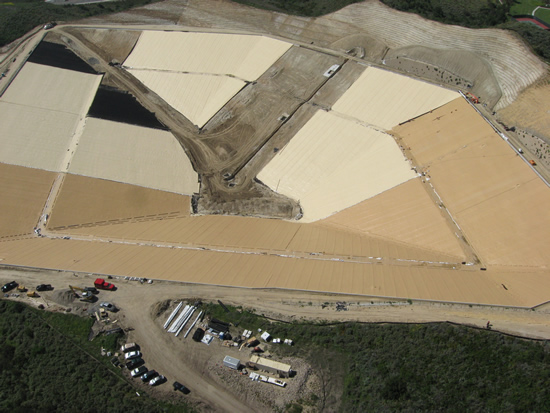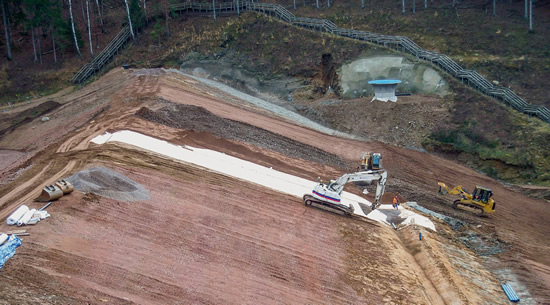

 The Geosynthetic Institute (GSI) has run a highly successful series of monthly webinars over the past few years. The webinar offerings will increase in 2017, with two sessions per month from January through June followed by one per month from July through December.
The Geosynthetic Institute (GSI) has run a highly successful series of monthly webinars over the past few years. The webinar offerings will increase in 2017, with two sessions per month from January through June followed by one per month from July through December.
With January 4, GSI’s webinars will shift their traditional schedule. Instead of hosting a monthly session on the second Wednesday of every month, GSI’s webinar offerings will take place on the first and third Wednesday’s of the month. Again, this affects only January through June 2017. For July, August, September, November, and December, GSI will return to every second Wednesday.
An anomaly in the schedule will be in October when again two sessions are offered, in order to accommodate the four-part MSE wall series before the year ends.
A description of the next session and the full 2017 schedule follows.
JANUARY 4 – LIVE WEBINAR ON HYDRAULIC APPLICATIONS
On 4 January 2017, GSI will host an updated, live webinar on “Geosynthetics in Hydraulic Applications.” The session will begin promptly at 11:30 AM (EST) and last for approximately 80 minutes. Question and answer time will be made available too. Participants may be eligible to receive 1.5 professional development hours (PDHs) upon completion of a 10-question multiple choice test.
Webinar Cost
GSI Members – $200.00
Non GSI Members – $250.00
About “Geosynthetics in Hydraulic Applications”
By 2040 it is estimated that two billion people (25% of the world’s population) in 60 countries will have inadequate fresh water. This alarming prediction suggests that water must be hydraulically transferred from locations of excess to those in need. This webinar will make the point that geosynthetics (primarily geomembranes) will play a pivotal role in this regard. From waterproofing dams, to canals, to reservoirs liners and covers, to tunnels and then pipes, the webinar proceeds in like manner.
Each specific application is explained and illustrated insofar as the latest technology is concerned. Even bold new initiatives of fresh water being transported by sea in mega-geomembrane bags will be illustrated.
Each section of the webinar has its own summary leaving a conclusions and recommendation section for the end. Here the state-of-the-practice will be presented along with the suggested “key to acceptance” status being mentioned.
Register at www.geosynthetic-institute.org/webinar.htm.
GSI WEBINAR OFFERINGS 2017
January 4 – Geosynthetics in Hydraulic Applications
January 18 – Pond Liner Design & Performance
February 8 – Wave (or Wrinkle) Management [For Proper Deployment of Geomembranes]
February 22 – Geosynthetic Drainage Materials: Applications, Design, Installation and Performance
March 8 – Behavior and Analysis of Twenty Solid Waste Landfill Failures
March 22 – Wet (Bioreactor) Landfills for Rapid Degradation of MSW Organics
April 12 – Lateral and Vertical Expansions Over Old and Existing Landfills
April 26 – Geosynthetic Applications Used in Heap Leach Mining
May 10 – Landfill Covers: Past-Present-Emerging
May 24 – Beneficial Uses of Abandoned and/or Closed Landfills
June 14 – Lifetime Predictions of Covered and Exposed Geosynthetics
June 28 – A Brief Overview of Geosynthetics and Their Major Applications
July 12 – In-Situ Stabilization of Soil Slopes Using Nailed (or Anchored) Geosynthetics
August 9 – Sand Drains-to-Wick Drains-to-Sand-Columns
September 13 – Geosynthetics in Erosion Control
October 11 – A Data Base and Analysis of 301 Failed MSE Walls With Geosynthetic Reinforcement
October 25 – MSE Wall Back Drainage Design
November 8 – MSE Wall Remediation and Monitoring
December 13 – Mechanically Stabilized Earth (MSE) Wall, Berm and Slope Construction Inspection
Learn more at and register at www.geosynthetic-institute.org/webinar.htm.











